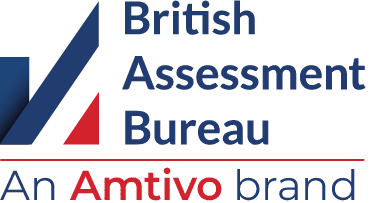From February 2025, suppliers bidding for NHS framework agreements will need to demonstrate compliance with accredited quality management standards.
NHS Supply Chain has confirmed that ISO 9001 or ISO 13485 certification – issued by a certification body accredited by UKAS (United Kingdom Accreditation Service), or another IAF member – will be a mandatory requirement for inclusion in certain framework agreements. Certification has long supported supplier eligibility in public sector tenders. For example, 30% of British Assessment Bureau clients in (August 2025) reported that access to tenders was a key reason for seeking certification.
This requirement reflects a broader trend: quality management systems are increasingly regarded not just as a competitive advantage, but as a baseline expectation in regulated procurement environments.
See how the wider Act impacts SMEs and environmental compliance.
What Do the New Rules Mean for You?
To be eligible, suppliers must provide:
- A valid ISO 9001 or ISO 13485 certificate from a UKAS-accredited body, or another accreditation body recognised by the International Accreditation Forum (IAF).
- Evidence that certification audits have been completed, or a confirmation letter from the accredited certification body if certification is in progress.
- Confirmation that the scope of certification covers all relevant products, services, and supply chain activities, including subcontracted processes where applicable.
ISO 9001 or ISO 13485? Here’s What You Need to Know
Both ISO 9001 and ISO 13485 are internationally recognised quality management standards, but they serve different purposes. If you’re supplying to the NHS, choosing the right standard is key.
|
|
ISO 9001 – For All Industries |
ISO 13485 – For Medical Devices |
|---|---|---|
|
Why it exists |
Designed for any organisation that wants to improve quality, consistency, and customer satisfaction. |
Created specifically for companies involved in medical devices, equipment, or healthcare-related manufacturing. |
|
Main goal |
Helping you deliver better, more reliable products and services, whatever your sector. |
Ensuring product safety, regulatory compliance, and traceability from design through to delivery. |
|
How it works |
Flexible and adaptable – you build a system around your business and its risks. |
More structured – you’ll follow stricter rules around documentation, validation, and process control. |
|
Why NHS frameworks care |
Shows you have a credible quality system in place – essential for public procurement. |
Often required by regulators like the Medicines and Healthcare products Regulatory Agency (MHRA) and supports UKCA or CE marking requirements. |
Consequences of Non-Compliance
Suppliers who do not meet the certification criteria may be deemed ineligible for framework participation. In addition to limiting access to NHS Supply Chain opportunities, failure to comply may impact an organisation’s credibility and future procurement eligibility across other public sector bodies.
Contact Us
Contact our team today to discuss your certification journey towards ISO 9001 and ISO 13485.
FAQS:
Do subcontractors need certification?
While NHS Supply Chain requires suppliers to hold UKAS-accredited or equivalent ISO certification for the products and services they supply, the public framework documents do not explicitly clarify whether subcontractors need separate certification or whether they can operate under the main supplier’s certified system. It is prudent for suppliers to verify with NHS Supply Chain and the contract terms whether subcontractor certification or formal oversight integration is required.
What counts as accredited certification?
Certificates must be issued by certification bodies accredited by UKAS or another IAF-recognised accreditation body. Unaccredited certificates may not meet NHS Supply Chain framework requirements.
What if our certification is still in progress?
Suppliers may submit a formal letter from their certification body confirming that certification audits have been completed and that certification is pending – subject to successful closure of any outstanding nonconformities – within the framework’s required timeline.
Does this apply to all NHS frameworks?
This requirement applies to NHS Supply Chain framework agreements launched or renewed from February 2025 onward. Other NHS frameworks may set similar requirements, so suppliers should review individual tender specifications carefully.



